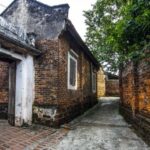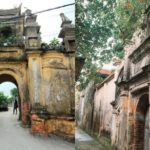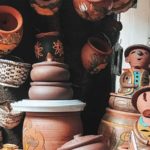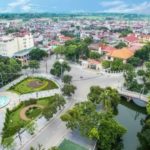The capital city of Hanoi is a treasure trove of ancient villages, offering visitors a glimpse into the rich history and cultural traditions of Vietnam. With the winter chill setting in, exploring these timeless locales becomes even more alluring, providing a peaceful escape from the bustling city life.
Duong Lam Ancient Village
Located about 40km from the city center, Duong Lam is one of the most famous ancient villages in Hanoi. Recognized as a National Cultural Heritage site in 2006, it is known for its unique architecture, featuring houses constructed from ong stone, a type of porous volcanic rock. Walking through the village, one is transported back in time, with red-brick roads, moss-covered walls, and centuries-old traditional houses.
What sets Duong Lam apart is the sense of tranquility it offers, a stark contrast to the hustle and bustle of the city. Visitors can explore the unique architecture of Mong Phu Communal House, reflecting Vietnam’s folk culture, or pay respects at the Thamn Hoa Giang Van Minh Church, commemorating a renowned historical figure. Duong Lam is also the birthplace of two Vietnamese kings, Ngo Quyen and Phung Hung, making it a significant site for those interested in the country’s history.
In addition to its cultural and architectural attractions, Duong Lam offers a delightful culinary experience with local specialties like peanut candy, ginger tea, and chicken with sugarcane, all offering a taste of rustic charm.
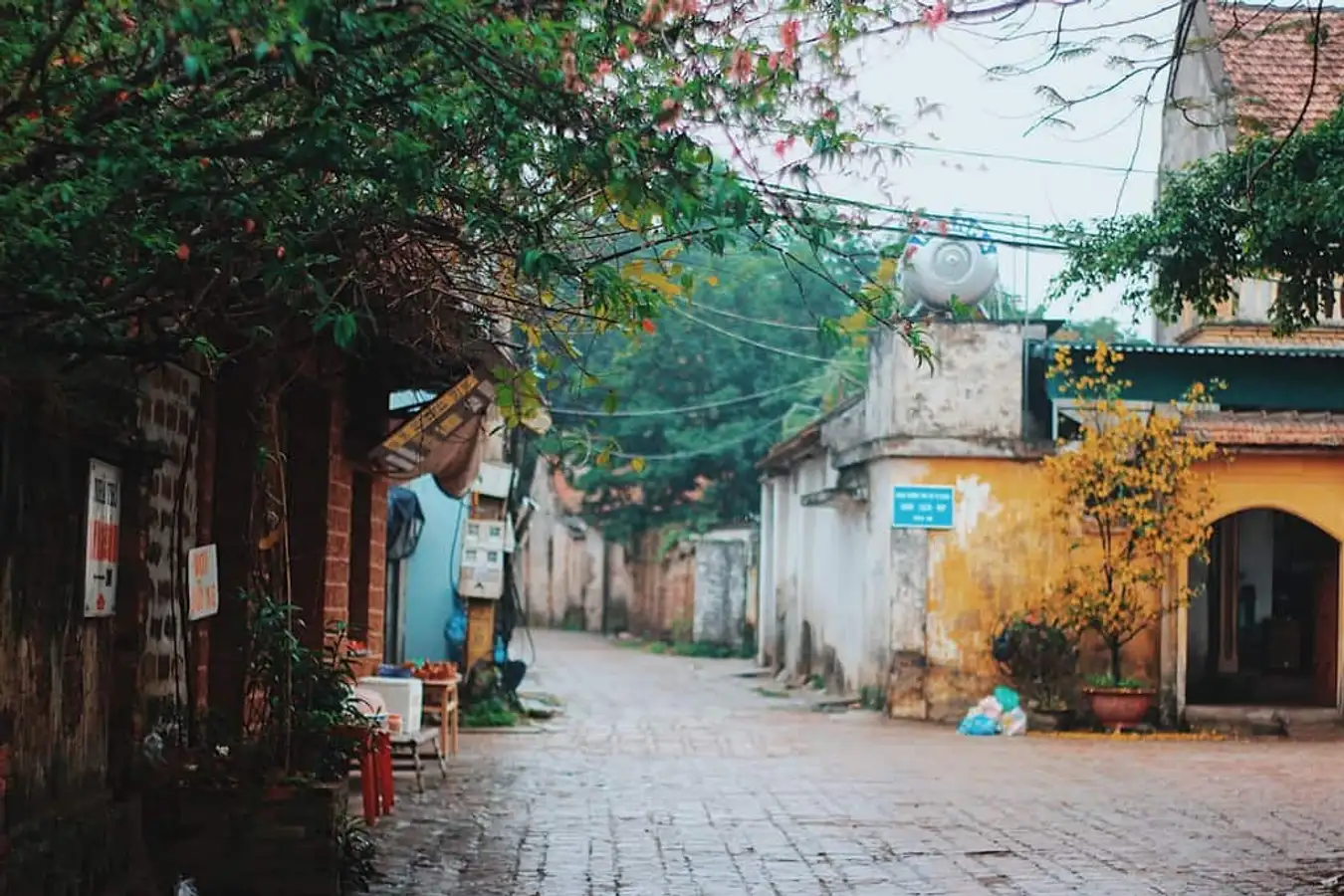
Duong Lam provides an ideal escape to immerse yourself in a peaceful atmosphere, discover local culture and history, and admire the timeless beauty of a Vietnamese ancient village.
A day trip to this village will reward you with stunning photos and a memorable experience.
Uoc Le Village
Uoc Le Village is renowned for its traditional pork sausage and pork pie, but it also captivates visitors with its ancient architecture. During the winter, the village takes on a serene and tranquil atmosphere, with old brick roads and narrow pathways surrounded by ong stone walls covered in green moss, exuding a sense of nostalgia.
The cold weather adds to the quietness of the village, and the scent of sausages being prepared wafting through the air creates an indescribable feeling for visitors.
One of the most fascinating experiences when visiting Uoc Le Village in winter is exploring the traditional sausage-making craft. Visitors can witness the intricate and time-honored process by visiting local families who have been practicing this trade for generations. Moreover, you’ll have the opportunity to indulge in freshly made, delicious sausages, providing a heartwarming treat in the chilly weather.
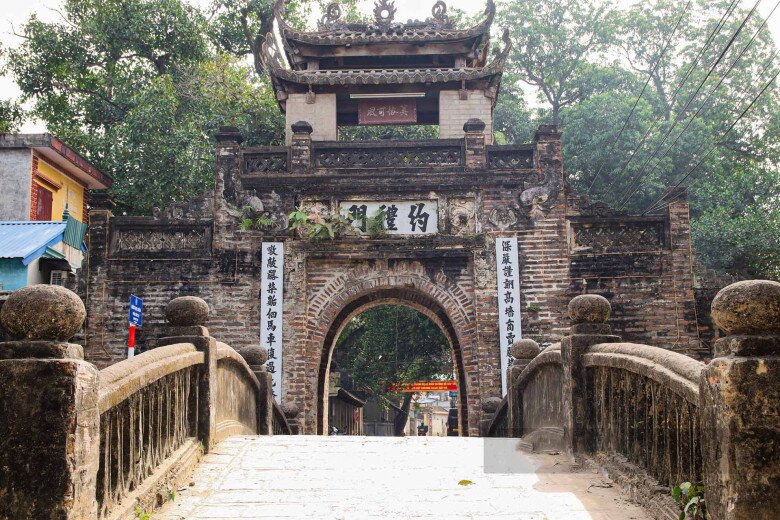
As you enter the village, you’ll be greeted by the majestic village gate, and the houses, market, and communal house will transport you back in time, as they retain their traditional charm from centuries ago.
Dong Ngac Ancient Village
Located in the heart of the capital, Dong Ngac Village in Bac Tu Liem District has stood the test of time, with its houses exuding an ancient aura and preserving the architectural style of past generations.
Formerly known as Nom, Ve, or Ke Ve, Dong Ngac sits on the banks of the Red River, right below the Thang Long Bridge. Upon entering the village, one immediately notices the ancient architecture, including the village gate, the communal house, and centuries-old houses with red-tiled roofs and ong stone walls.
In addition to its architectural allure, Dong Ngac is renowned for its traditional trades, such as Chemm sausage, Ve spring rolls, bamboo shoulder poles, and clay pot crafting.
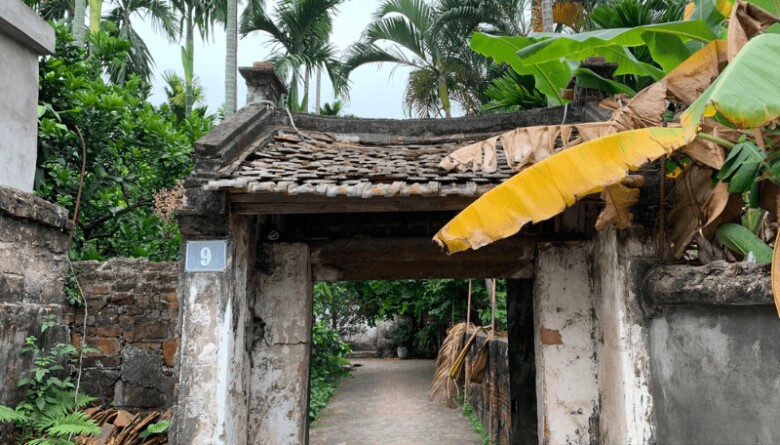
Dong Ngac is an ideal destination for those seeking to immerse themselves in the ancient culture and traditions of a Vietnamese village, right in the midst of modern Hanoi.
Yen Truong Village
Yen Truong Village, nestled in the outskirts of Hanoi, exudes a peaceful and ancient charm, especially during the winter months. The village is enveloped in a dreamy haze, creating a serene and rustic atmosphere.
Strolling through Yen Truong in winter, one can breathe in the calm and tranquility, feeling detached from the city’s hustle and bustle. The rice fields and vegetable gardens, even during the winter break, add to the simplicity of village life. One of the village’s distinctive features is a fence made of bauhinia trees by the locals, which has become a symbol of this ancient village in the capital.
A visit to Yen Truong offers not only a chance to connect with nature but also an opportunity to delve into the local culture and traditions. The ancient communal house, with its unique architecture and rich history, hosts folk festivals at the beginning of the year. Additionally, visitors can explore the homes of local artisans, admire their unique crafts, and learn about traditional production processes.
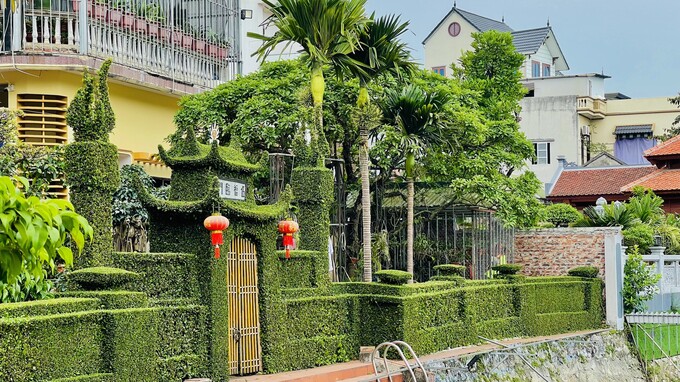
Yen Truong is the perfect place to seek tranquility, immerse yourself in culture and history, and enjoy the serene beauty of a village in the chilly winter season.
Cu Da Ancient Village
Nestled peacefully on the banks of the Nhuệ River, Cu Da Village exudes the quintessential charm of Northern Vietnamese villages, featuring communal houses, village gates, banyan trees, and a unique blend of French-inspired architecture.
From the main road, dozens of small alleys branch out, leading to various hamlets. Despite the passage of time and historical events, Cu Da has managed to preserve its original essence. The village is characterized by houses designed in the typical architecture of the Red River Delta region, featuring tiled roofs and a layout of three or five compartments.
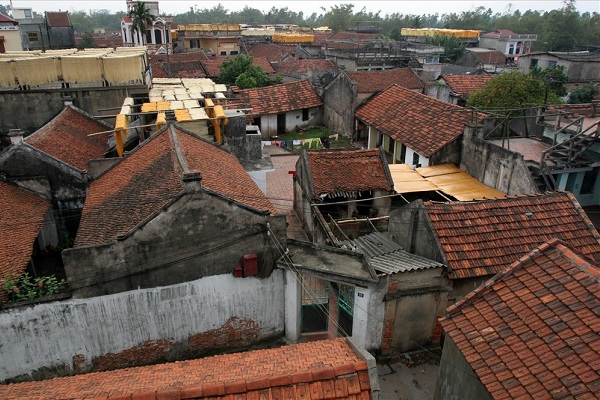
Cu Da Village boasts a unique fishbone layout, with alleys radiating from the main road.
Cu Da is synonymous with the traditional craft of making dong noodles and soy sauce. Beyond the photo opportunities, visitors can delve into these traditional trades and gain a deeper understanding of the local culture.
Cuu Village
Located in Van Tu, Phu Xuyen, about 500 years old, Cuu Village is a must-visit destination when exploring Hanoi in winter. Despite the passage of time, Cuu Village retains its ancient charm and a unique architectural blend of ancient Vietnamese and French influences, creating a familiar yet exotic atmosphere.
The intricate carvings, old wooden doors, moss-covered walls, and red-tiled roofs covered in the dust of time evoke a sense of nostalgia and romance. The village also boasts a dreamy lotus pond and alleys imbued with the patina of age, contributing to its timeless beauty. The winter mist adds a layer of subdued hues, enhancing the village’s simplicity and depth.
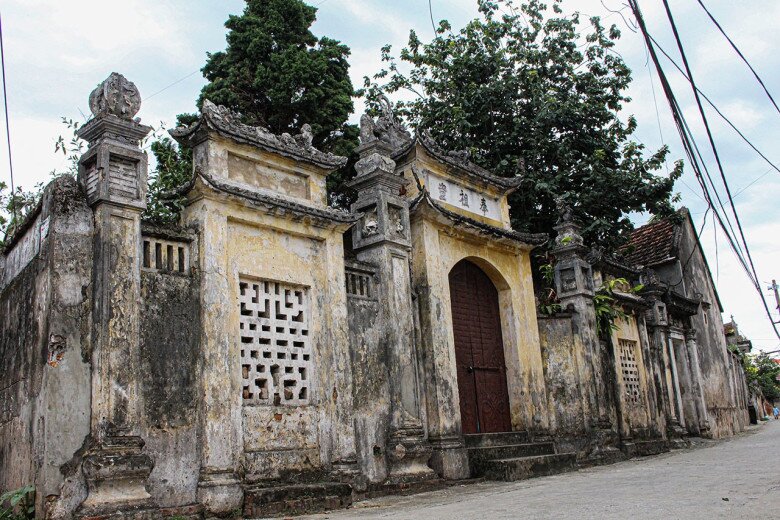
The allure of Cuu Village goes beyond its architecture; it lies in the warmth and simplicity of its residents, who continue to embrace a slow-paced life, closely connected to the traditional craft of tailoring.
These villages are still inhabited by locals, so visitors are kindly reminded to maintain cleanliness and respect the peace and security of these ancient neighborhoods.
Uncover the Ancient Charm of Hanoi: A Journey Through Timeless Attractions
The ancient village of Duong Lam, known as the “Vietnamese Ancient Village”, is a treasure trove of historic gems. From ancient houses, temples, churches and communal halls, to the quaint village gates and wells, this village offers a glimpse into the past. With so many attractions, a day may not be enough to explore all that Duong Lam has to offer.
Finding Peace: Exploring Five Centuries-Old Villages in Hanoi’s Heart
Nestled not far from the bustling heart of Hanoi lies a cluster of villages that have stood the test of time. These hamlets are a living testament to a bygone era, boasting architecture that is both ancient and humble. The tranquility that envelops these villages is truly extraordinary, offering a serene escape from the hustle and bustle of city life.
























